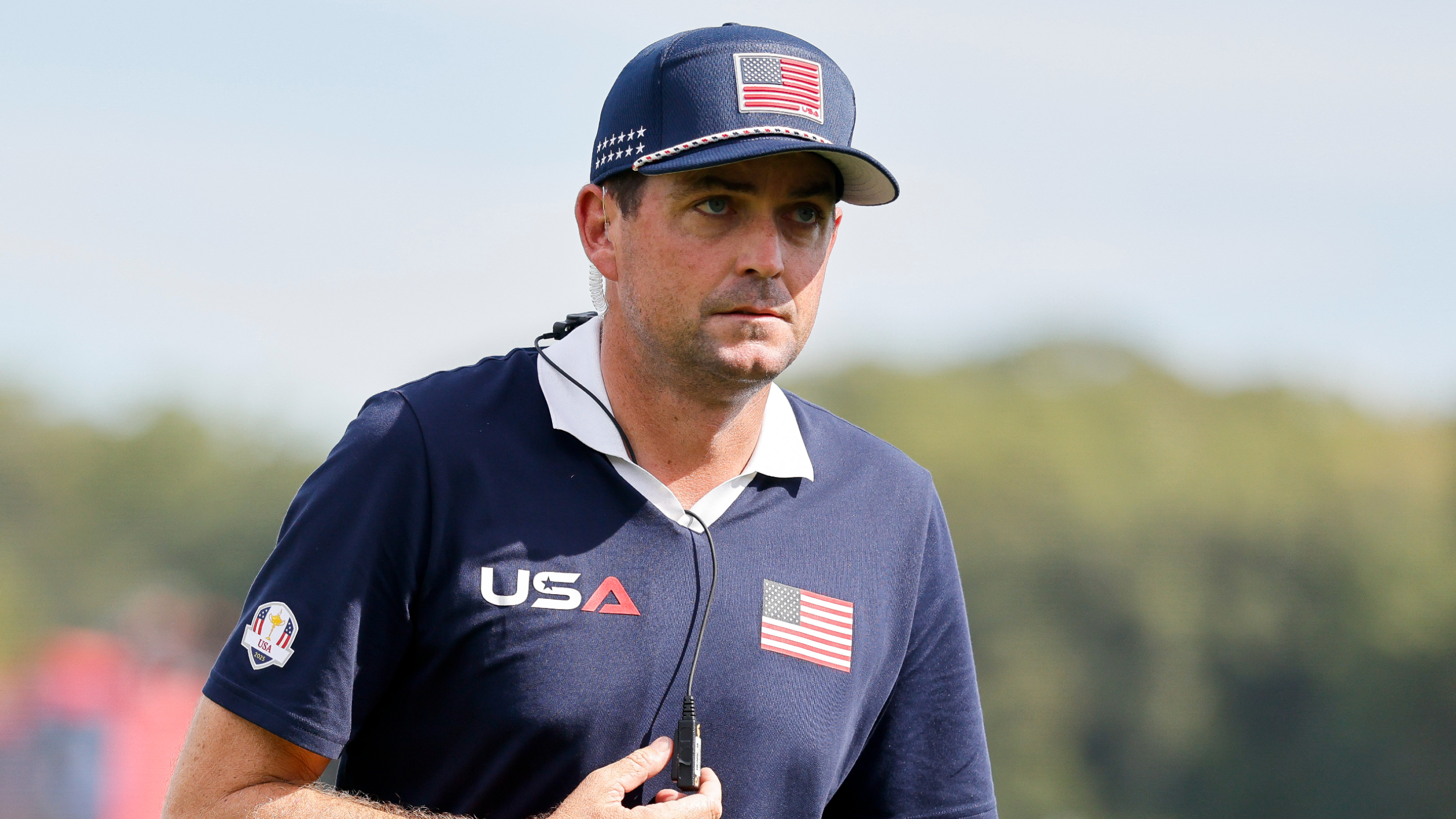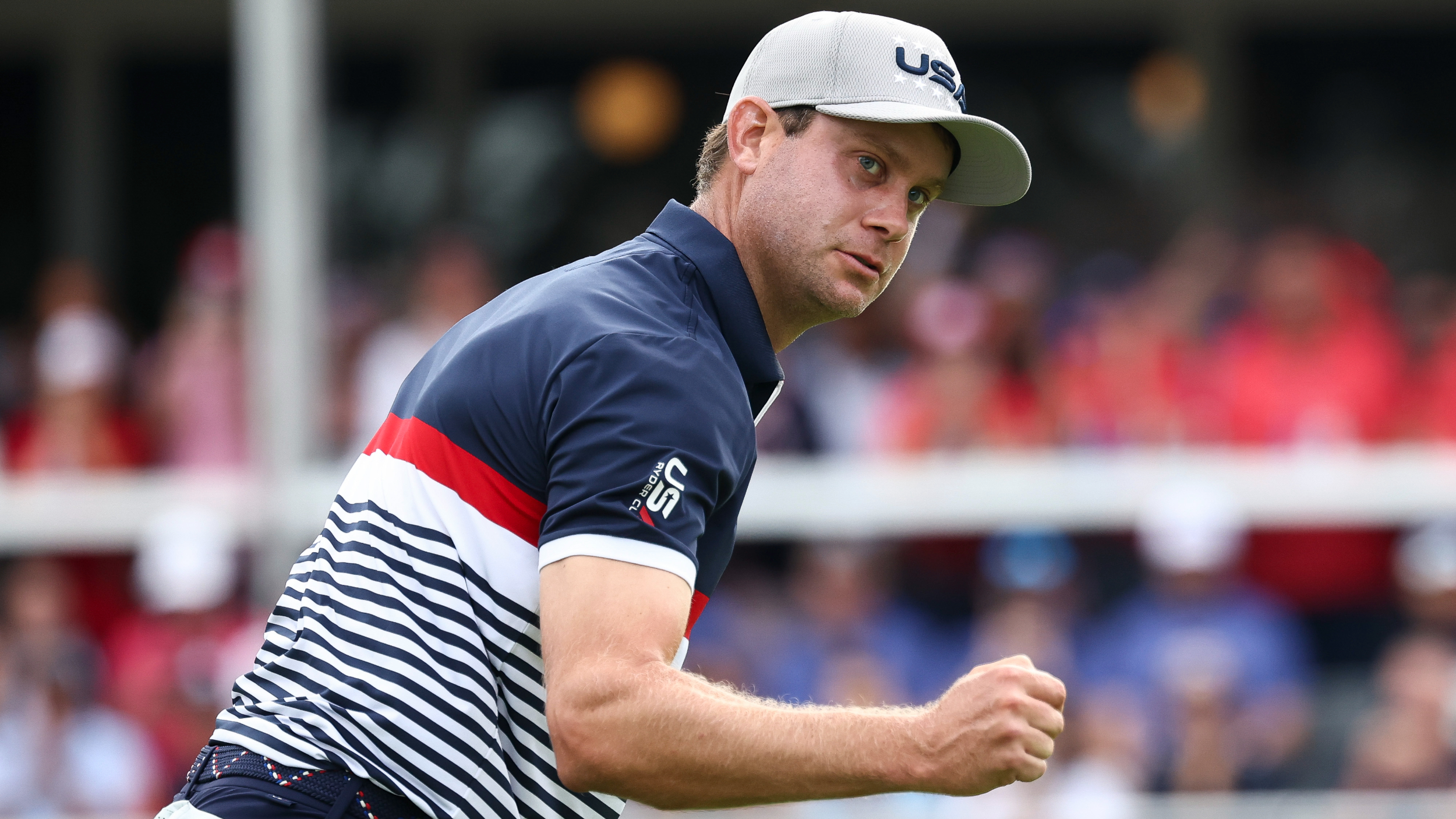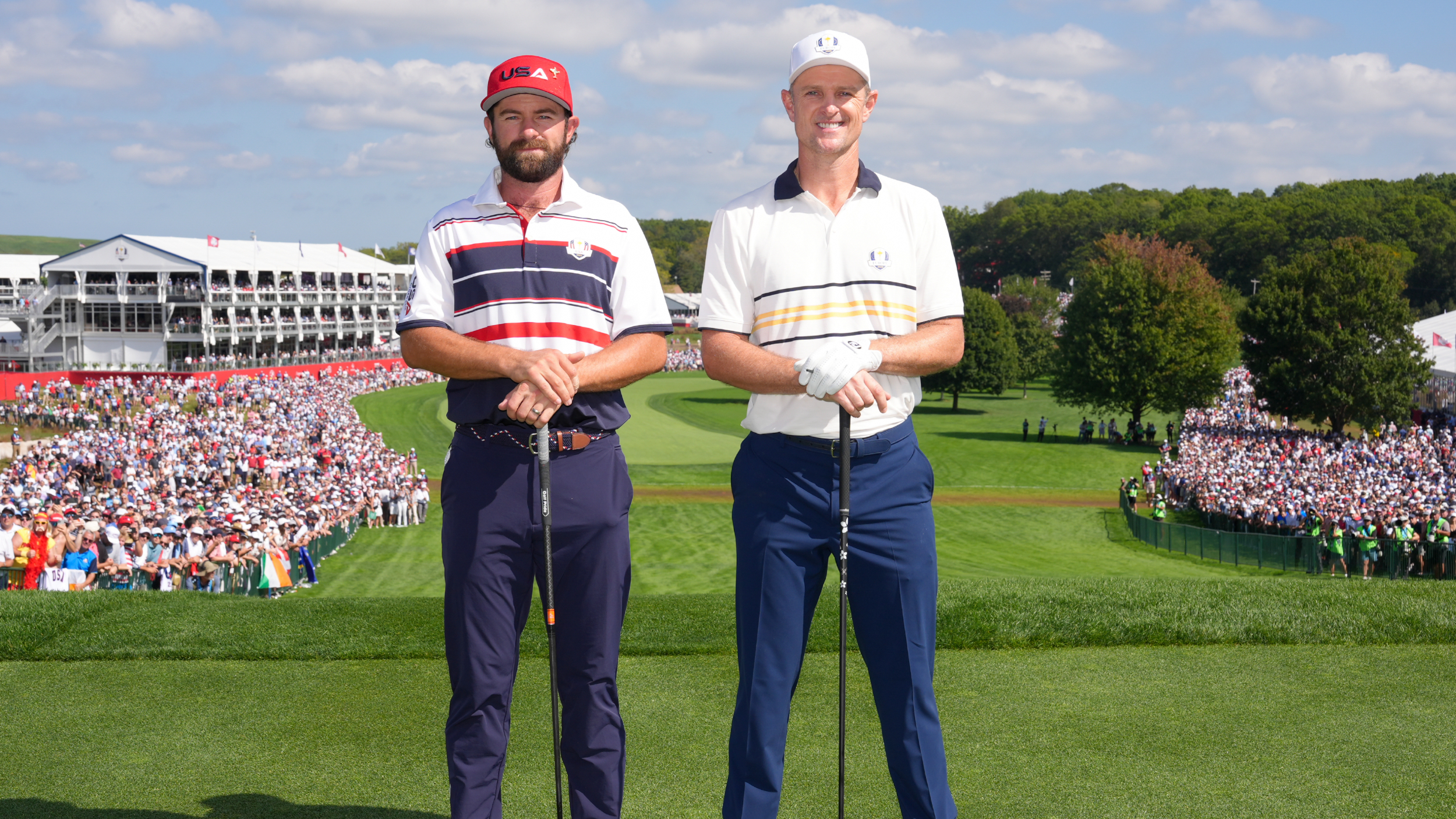Keegan Bradley Questions ‘Strange’ Ryder Cup Envelope Rule After Hovland WD
The US captain faced the awkward task of telling Harris English he was missing the final session after Team Europe's Viktor Hovland withdrew


Subscribe to the Golf Monthly newsletter to stay up to date with all the latest tour news, equipment news, reviews, head-to-heads and buyer’s guides from our team of experienced experts.
You are now subscribed
Your newsletter sign-up was successful
Want to add more newsletters?

Delivered daily
Daily Newsletter
Sign up for all the latest tour news, gear reviews, head-to-heads and buyer’s guides plus features, tips from our top 50 coaches and rules advice from our expert team.

Once a week
Kick Point
Sign up to our free Kick Point newsletter, filled with the latest gear reviews and expert advice as well as the best deals we spot each week.

Once a week
Women's Golf Edit
Sign up to our free newsletter, filled with news, features, tips and best buys surrounding the world of women’s golf. If you’re a female golfer, you won’t want to miss out!
It’s safe to say the week has not gone as US Ryder Cup captain Keegan Bradley had envisioned.
Not only was his team outclassed by the Europeans in the first four sessions of the biennial match at Bethpage Black, but he was also forced to reveal the name of a fall guy who would play no part in Sunday singles thanks to the little-known envelope rule.
The rule was used for just the third time in Ryder Cup history when Europe’s Viktor Hovland withdrew from the Sunday singles with a neck injury that kept him out of the Saturday afternoon four-balls.
Unlike the opening four sessions, all 12 players on each team are used in the Sunday singles, with one player up against another. However, that presents a problem – what happens if a player withdraws through illness or injury?
Enter the envelope rule. It sees both captains put the name of one of their players in an envelope, with that player sitting out the Sunday singles in the event of a withdrawal on the other team.
The player whose name is in the envelope is paired with the ill or injured player, with the match halved.
While each captain puts a name in an envelope before the Sunday singles of every Ryder Cup, the unfortunate player never finds out his name was in the envelope if it’s not needed.
Subscribe to the Golf Monthly newsletter to stay up to date with all the latest tour news, equipment news, reviews, head-to-heads and buyer’s guides from our team of experienced experts.
Sadly for Bradley, that wasn’t the case this year, and he had to reveal that Harris English was the unlucky member of his team to miss the session to accommodate Hovland’s withdrawal.

Harris English missed the Sunday singles due to the envelope rule
As the session got underway, Bradley gave his thoughts on the rule, saying: “It’s tough. It's a strange rule, but we've got to go with what the rules say.”
Back in 2002, US captain Curtis Strange said it was “the most uncomfortable thing I ever had to do,” and that’s without the envelope having to be unsealed.
So, how did English take the news that Bradley had, in effect, chosen him as the player he could most manage without? “He took it so well,” he added. “I’m really proud of him.”
Even if English had played, US hopes of victory were all but over before the start of the final session, having been comprehensively outplayed all week.
The Europeans led 11.5-4.5 overnight, needing just 2.5 points to retain the trophy or 3 more points to win it outright.

Team Europe began the Sunday singles session needing 2.5 points to win the Ryder Cup outright
Those numbers were reduced by half a point thanks to the envelope rule, but despite the situation, Bradley refused to throw in the towel, instead drawing comparisons to the 2017 Super Bowl, when New England Patriots were 28-3 behind against Atlanta Falcons before coming back to win 34-28.
He said: “I was at that Falcons 28-3 -Tom Brady! We can be the Patriots today, why not? I told [the players] to remember how cool it would be when you were 16, to go out at Bethpage Black and represent your country.
“No matter the score, go out there and enjoy the day, win your match and don’t worry about anything else.”
While Bradley’s optimism is admirable, history is not on his side. Since the 28-point era began in 1979, no team has come back from a margin as big as the US faced at the start of Sunday’s session.
Even 10-6 deficits have been turned around just twice, in 1999 when the US won the infamous Battle of Brookline and 2012, when Europe completed the Miracle of Medinah.

Mike has over 25 years of experience in journalism, including writing on a range of sports throughout that time, such as golf, football and cricket. Now a freelance staff writer for Golf Monthly, he is dedicated to covering the game's most newsworthy stories.
He has written hundreds of articles on the game, from features offering insights into how members of the public can play some of the world's most revered courses, to breaking news stories affecting everything from the PGA Tour and LIV Golf to developmental Tours and the amateur game.
Mike grew up in East Yorkshire and began his career in journalism in 1997. He then moved to London in 2003 as his career flourished, and nowadays resides in New Brunswick, Canada, where he and his wife raise their young family less than a mile from his local course.
Kevin Cook’s acclaimed 2007 biography, Tommy’s Honour, about golf’s founding father and son, remains one of his all-time favourite sports books.
You must confirm your public display name before commenting
Please logout and then login again, you will then be prompted to enter your display name.